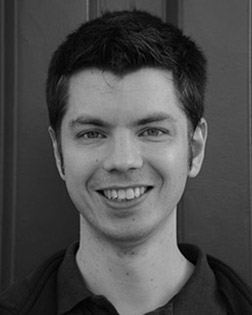
Stefan Baack is a Research and Data Analyst for Mozilla Foundation. Stefan Baack’s research is broadly interested in how the growing quantification of social life intersects with democratic practices and visions. In his dissertation, he studied how data journalists and civic tech activists use and imagine data; and examined how the growing reliance on data across different sectors in society has created new entanglements between journalism and civil society. After his MA at the University of Bremen (Germany), he did his PhD at the Centre for Media and Journalism Studies at the University of Groningen (Netherlands). After his PhD, he worked as an associate researcher at the Alexander von Humboldt Institute for Internet and Society and as a research fellow at the Weizenbaum Institute. Recently, he started to work as a research and data analyst for the Mozilla Foundation.
DJRG Fellow, March 2019
Title and abstract
Understanding journalism without boundaries: The interlocking practices between data journalism and civic tech
It is largely acknowledged that the news-making-process is shaped by “networked forces…that span multiple professional identities” (Ananny and Crawford 2015, 192–93). However, research rarely considers the reciprocal relationship between journalists and others: primarily, what is being researched are the effects of ‘outsiders’ on journalists, not whether and how journalists affect those outsiders as well. In this presentation, I will present findings from my research about the entanglements between data journalism and civic tech to argue that we need concepts and metaphors that better grasp journalism as a dynamic set of practices that crosses organizational and institutional boundaries.
Civic technologists and data journalists are closely entangled with each other thanks to their shared reliance on data, overlapping skills, complementary ambitions, as well as institutional and financial support from organizations like the Knight Foundation. Using a qualitative, multi-methodological approach, I show that we can understand the entanglements between them in terms of interlocking practices. Their practices exist along a shared continuum that oscillates between facilitating (enabling others to take action themselves) and gatekeeping (being impactful and steer public debates). Depending on how much emphasis data journalists or civic technologists put on either facilitating or gatekeeping, we can identify different groups across organizational and institutional settings. Additional research comparing the relationship between data journalism and civic tech in Africa and Europe further shows how data journalists or civic technologists mutually shape each other (Cheruiyot et al. forthcoming). In contexts where data journalism is less established, civic tech organizations tend to engage more in practices of gatekeeping, while in contexts where civic tech organizations are absent, journalists might engage more in practices of facilitating.
Rather than occupying distinct fields that only occasionally interact with each other around boundary objects or within special trading zones, the results show that civic technologists and data journalists continuously affect each other. Understanding how the practices of journalists are interlocking with other actors in these ways illustrates the need for a more holistic approach to the study of journalism in general, one that not only looks at professional journalists, but more broadly at the larger actor-constellations in which journalists are embedded.
Selected publications
- Cheruiyot, David, Baack, Stefan & Ferrer-Conill, Raul. Forthcoming 2019. “Data journalism beyond legacy media: The case of African and European civic technology organizations”. Digital Journalism.
- Baack, S., Ferrer-Conill, R. & Cheruiyot, D. (November 2018). Peripheral entanglements. How civic tech and data journalism expand and cement journalistic discourses and practices. ECREA 2018 conference, Lugano.Baack, S. (September 2018). Data journalism and its blurry boundaries: the relationship between data journalists and civic technologists. SciCAR conference, 2018, Dortmund.
- Baack, S. (June 2018). Leaking: Nur Strohfeuer, oder Ausdruck einer nachhaltigen Veränderung im Journalismus? (~Leaking: One hit wonders or expressions of enduring changes in journalism?). Presentation at the workshop ‘#krassmedial: Gute Daten, schlechte Daten’ organized by the German trade union ver.di, Berlin.
- Cheruiyot, D., Ferrer-Conill, R. & Baack, S. (May 2018). Fact-checking and journalistic discourse. The perceived influence of data driven non-profits in Africa. Paper presented at the ICA 2018 conference, Prague.
- Baack, S. (November 2016): Structuring Civic Engagement Through Data: How Civic Tech Is Shaping Citizenship. Paper presented at the ECREA 2016 conference, Prague.
- Baack, S. (October 2016). Civic tech: Restructuring publics through data. Panel submission, presented at the AoIR 2016 conference, Humboldt-Universität zu Berlin. See Baack, S., Velkova, J., Kubitschko, S., Ferrer, R., & Handler, R. (2017). Acting through technology: The proliferation of open source practices and its consequences. AoIR Selected Papers of Internet Research.
- Baack, S. (June 2015). Civic hacking: Re-Imagining Civic Engagement in Datafied Publics. Paper presented at the Data Power conference, University of Sheffield.